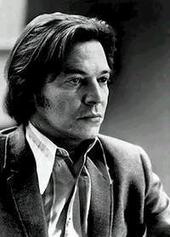Antonio Carlos Jobim (born Antonio Carlos Brasileiro de Almeida Jobim, January 25, 1927 in Rio de Janeiro December 8, 1994 in New York City), also known as Tom Jobim, was a Brazilian composer, arranger, singer, pianist and one of the greatest legends of the bossa nova era. Jobim's compositions have been performed by countless famous performers, including João Gilberto, one of the creators of the bossa nova genre (together with Jobim himself).
Jobim's roots were planted firmly in the works of Pixinguinha, a legendary musician and composer who, in the 1930s, began the development of modern Brazilian music. He was also influenced by the music of French composer Claude Debussy and by jazz.
Jobim found prominence in Brazil when he teamed up with poet and diplomat Vinicius de Moraes to provide the music for the play Orfeu de Conceição (1956). The most popular song from the show was Se todos fossem iguais a você (Someone to Light Up My Life). Later, when the play was turned into a film, French producer Sacha Gordine didn't want to use any of the existing music from the play. Gordine asked de Moraes and Jobim for a new score for Black Orpheus (1959). De Moraes was at this time in Montevideo working for the Itamaraty (the head office of the Ministry of Foreign Affairs) and so he and Jobim were only able to write three songs, primarily over the telephone. (A Felicidade, Frevo,and O Nosso Amor). The lyrics for his most popular songs were written by de Moraes. Later on, with the release of the Getz/Gilberto album (1963) popularized by the international mega hit of the single "The Girl from Ipanema" sung by the legendary Astrud Gilberto, Jobim acquired international fame.
American jazz singers Ella Fitzgerald and Frank Sinatra prominently featured Jobim's songs on their albums Ella Abraça Jobim (1981) and Francis Albert Sinatra & Antonio Carlos Jobim (1967), respectively. Jobim is recognized the world over as one of the most influential composers of the 20th century. Never fully recovering from a surgery, Tom passed away December 4th 1994.
Jobim was buried in the Cemitério São João Batista in Rio de Janeiro. The Rio de Janeiro Galeão-Antonio Carlos Jobim International Airport is now named in his honor.
